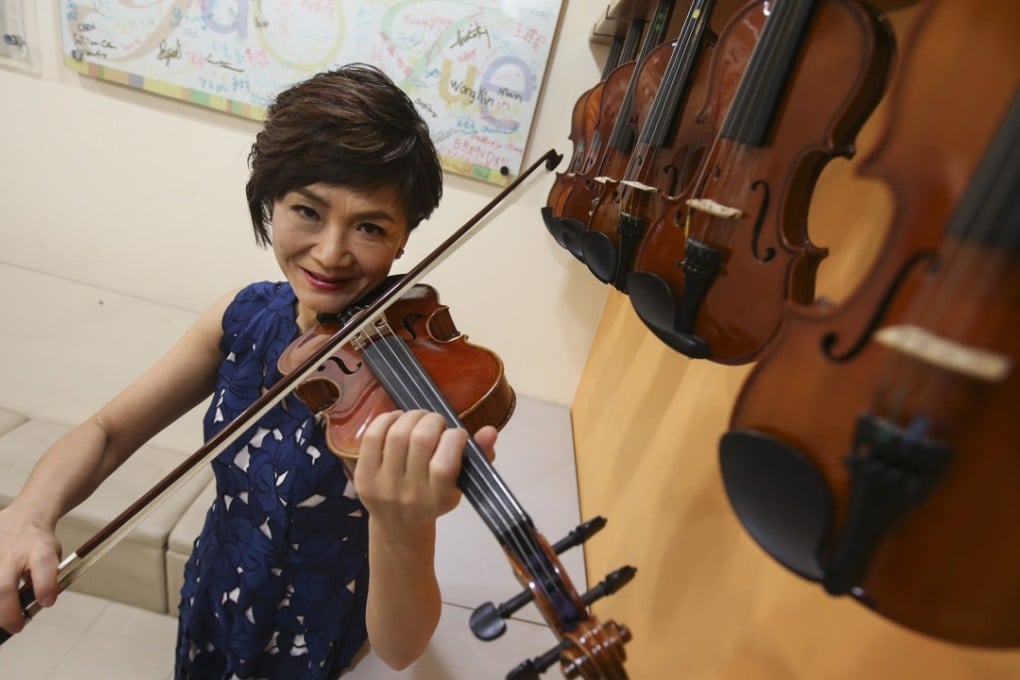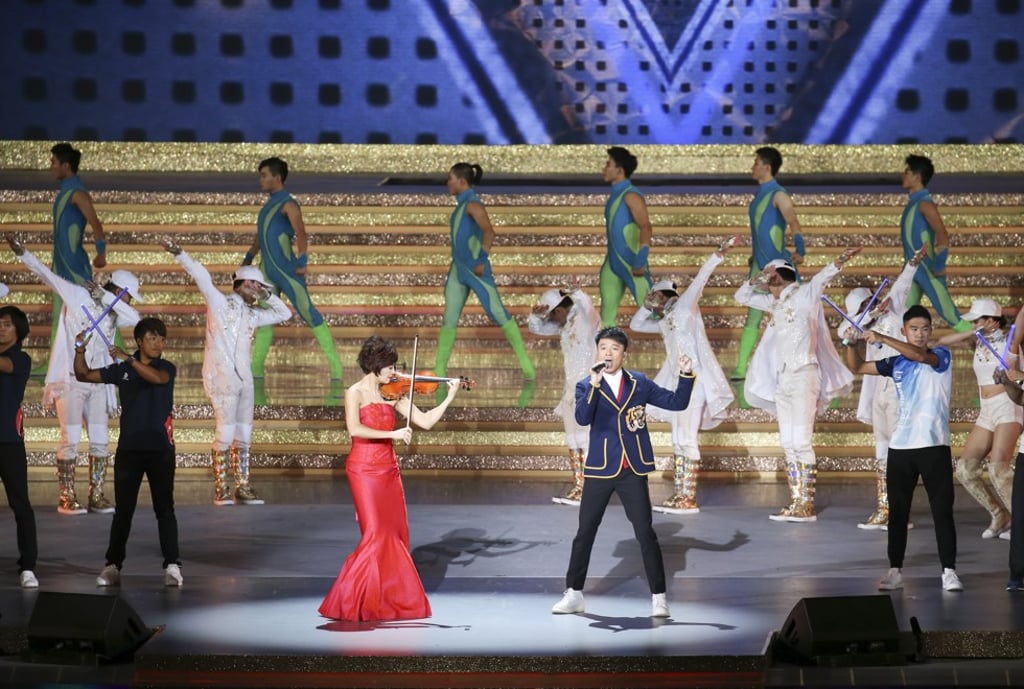Advertisement
Talented Hong Kong-based violinist has many bows to her string
Violinist Yao Jue considers herself to be Hongkonger after spending more time in city than her native Shanghai; she is also married to son of late Chinese negotiator Lu Ping
Reading Time:6 minutes
Why you can trust SCMP

With her performance to celebrate the 20th anniversary of Hong Kong’s return to China, Yao Jue set a record as the only violinist to play for three Chinese presidents in Hong Kong.
A resident of Hong Kong since the handover, Yao played in the presence of Jiang Zemin in 1997, Hu Jintao in 2012 and, on June 30 this year, Xi Jinping – all at official anniversary functions.
Advertisement
Though a member of the Shanghai People’s Political Consultative Conference, the Juilliard-educated violinist considers herself a Hongkonger after having lived here longer than in native Shanghai or as a student in the United States.
“Hong Kong is my home where I started my family and career. For that I am grateful and feel obliged to do something in return,” she says.
Advertisement
She was referring to her marriage to Lu Gong, son of the late director of the Hong Kong and Macau Affairs Office, Lu Ping, who was heavily involved in Hong Kong’s transition arrangements, and their wedding banquet in the city just a week after the 1997 handover.
Advertisement
Select Voice
Select Speed
1.00x
